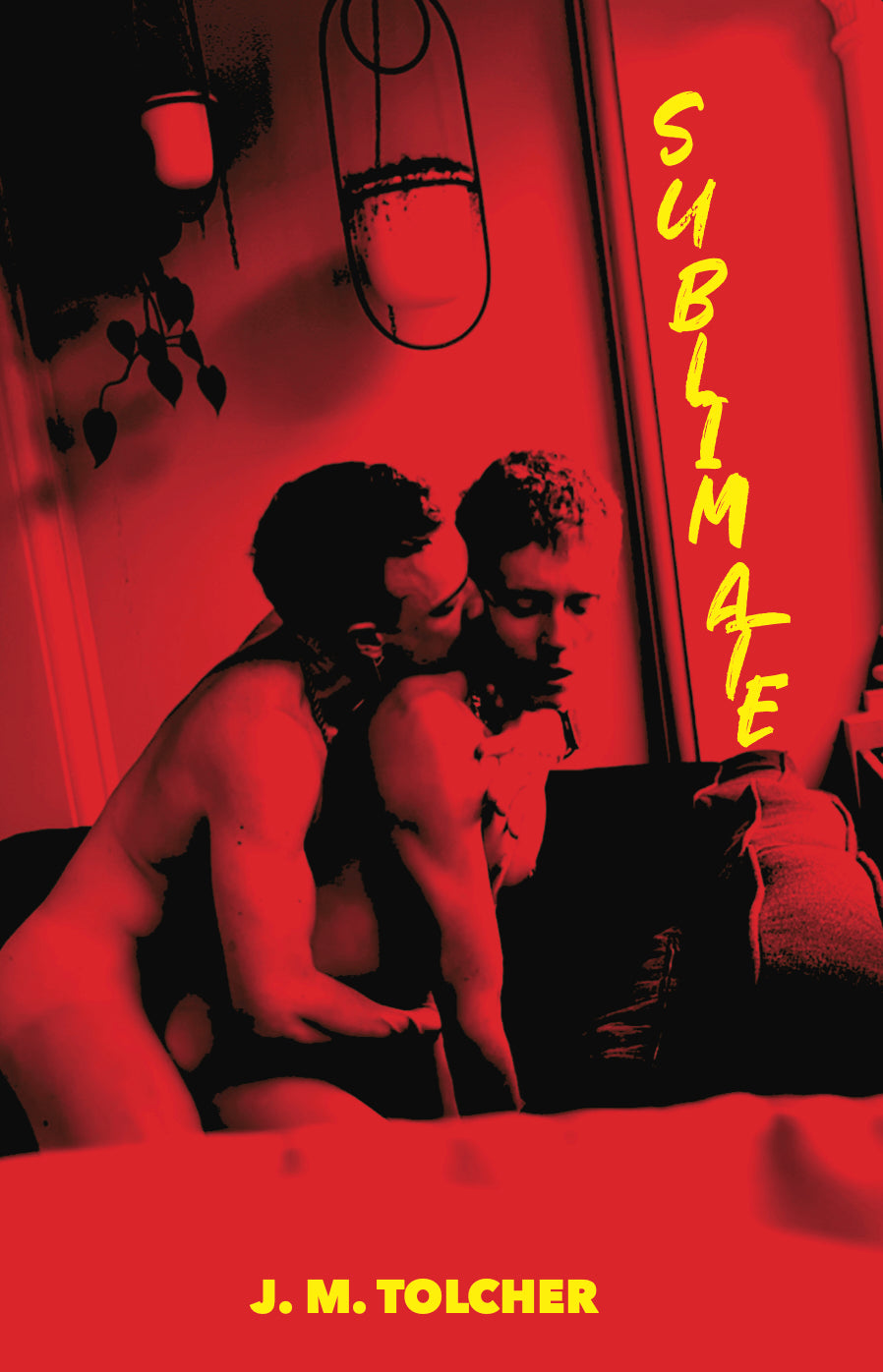
Sublimate - out now!
"Raw, poetic, philosophical and darkly confessional...
Tolcher’s work matters not only because of what it reveals, but because of how boldly he brings it into the world—without permission, without compromise."
- Star Observer (read the review here)
The famous author Honoré de Balzac used to say after sex “there goes another novel!”
Taking it literally, J. M. Tolcher sets out to write an entire book without ejaculating—an experiment in sublimation, desire, and control.
In just over a month, he attempts to channel his libido into art, diving into the ancient alchemical process—nigredo, albedo, citrinitas, rubedo—in a relentless search for meaning.
But what begins as a test of discipline becomes something far more dangerous. Libido, after all, isn’t just about sex. It’s the unseen force shaping power structures, fueling authoritarianism, and dictating the fate of the world itself.
Where does repressed desire go? What happens when it’s not sublimated? And can a man truly master his own urges—or does libido always find a way?
Tolcher returns to form as Australia’s hottest underground writer with another chronicle as cerebral as it is carnal, as philosophical as it is depraved.
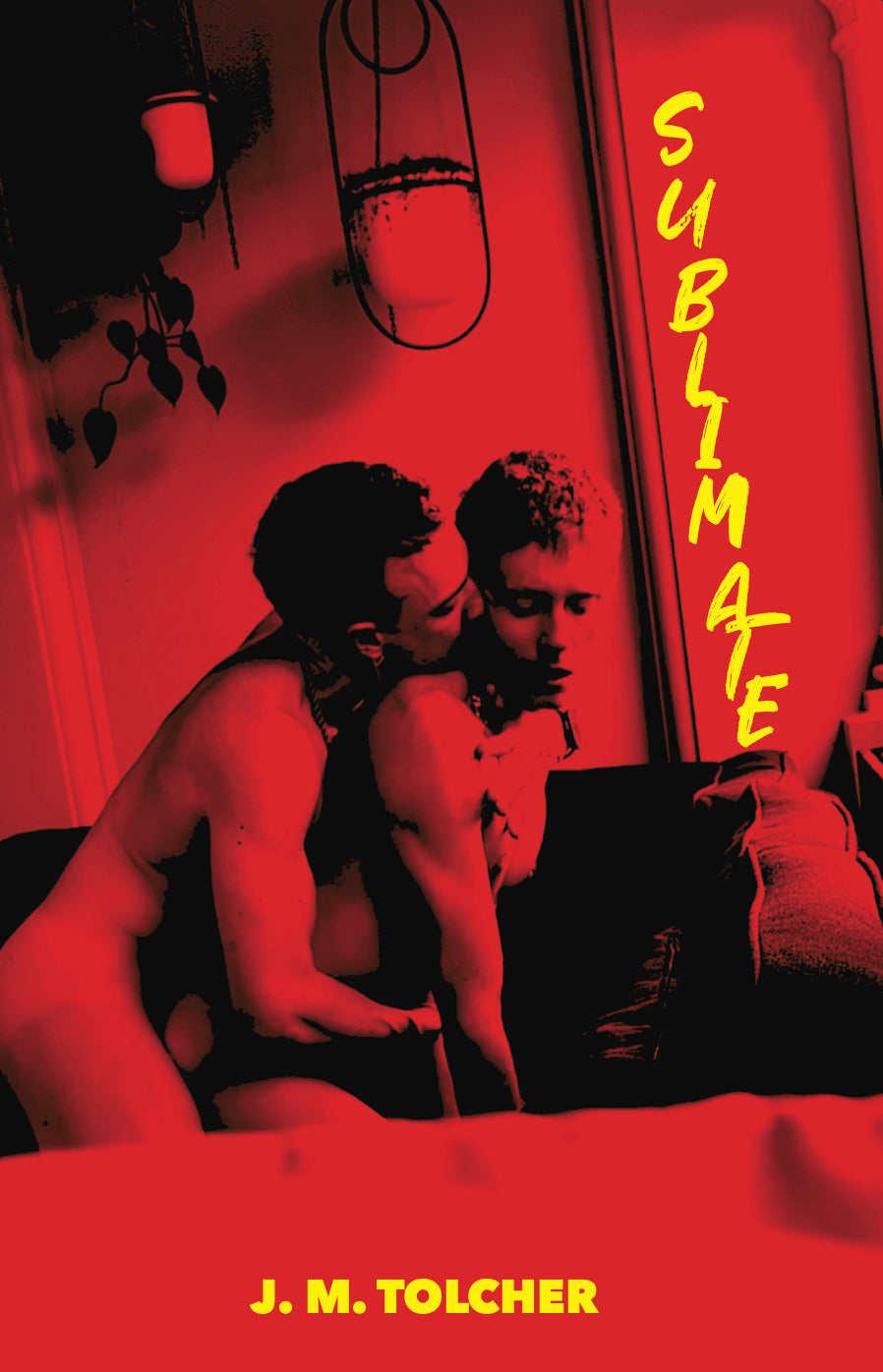
Sublimate [paperback]
Regular price
$21.99 AUD
Regular price
Sale price
$21.99 AUD
Unit price
per
![Sublimate [paperback]](http://jmtolcher.com/cdn/shop/files/Sublimatecover.jpg?v=1742516162&width=1445)
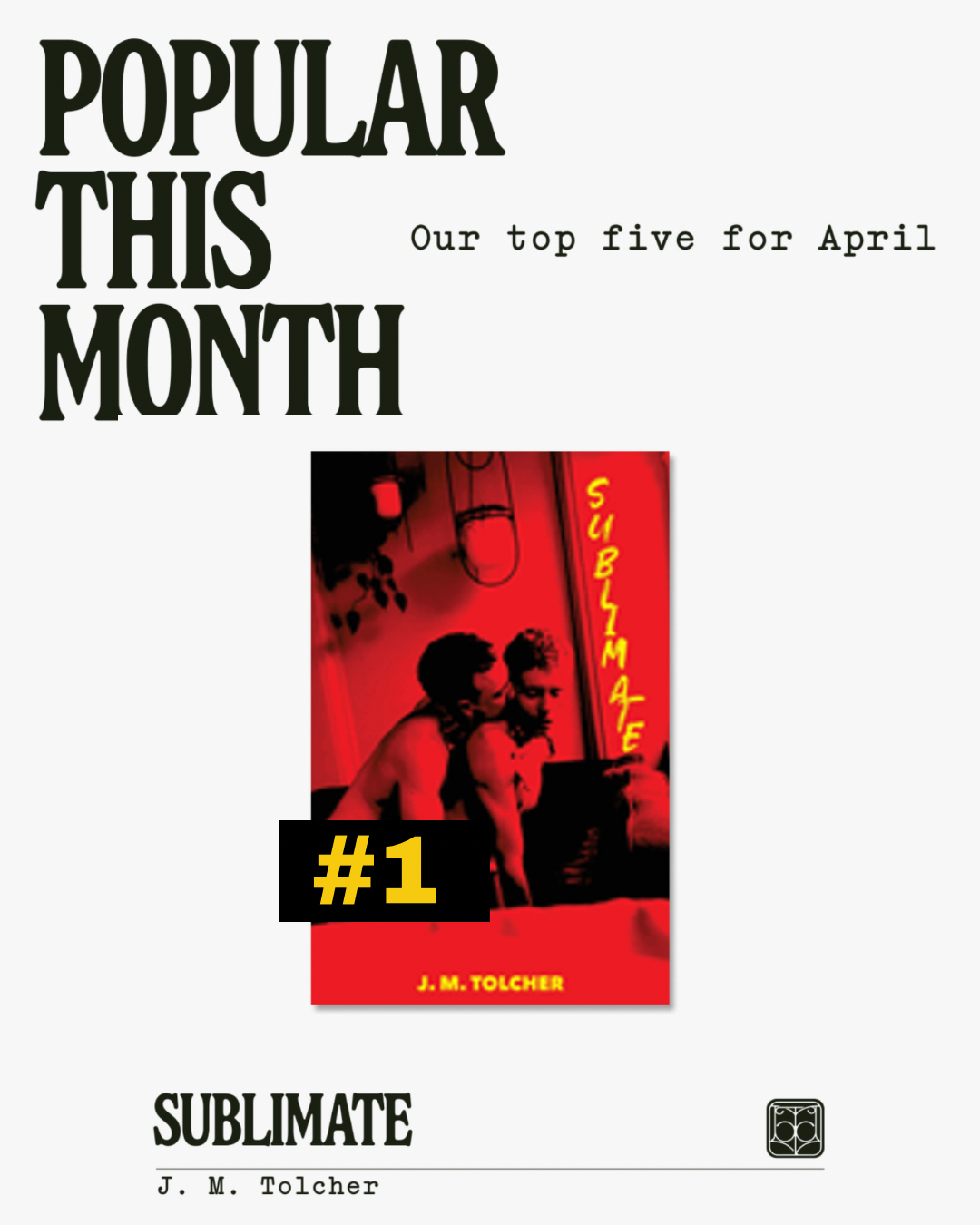
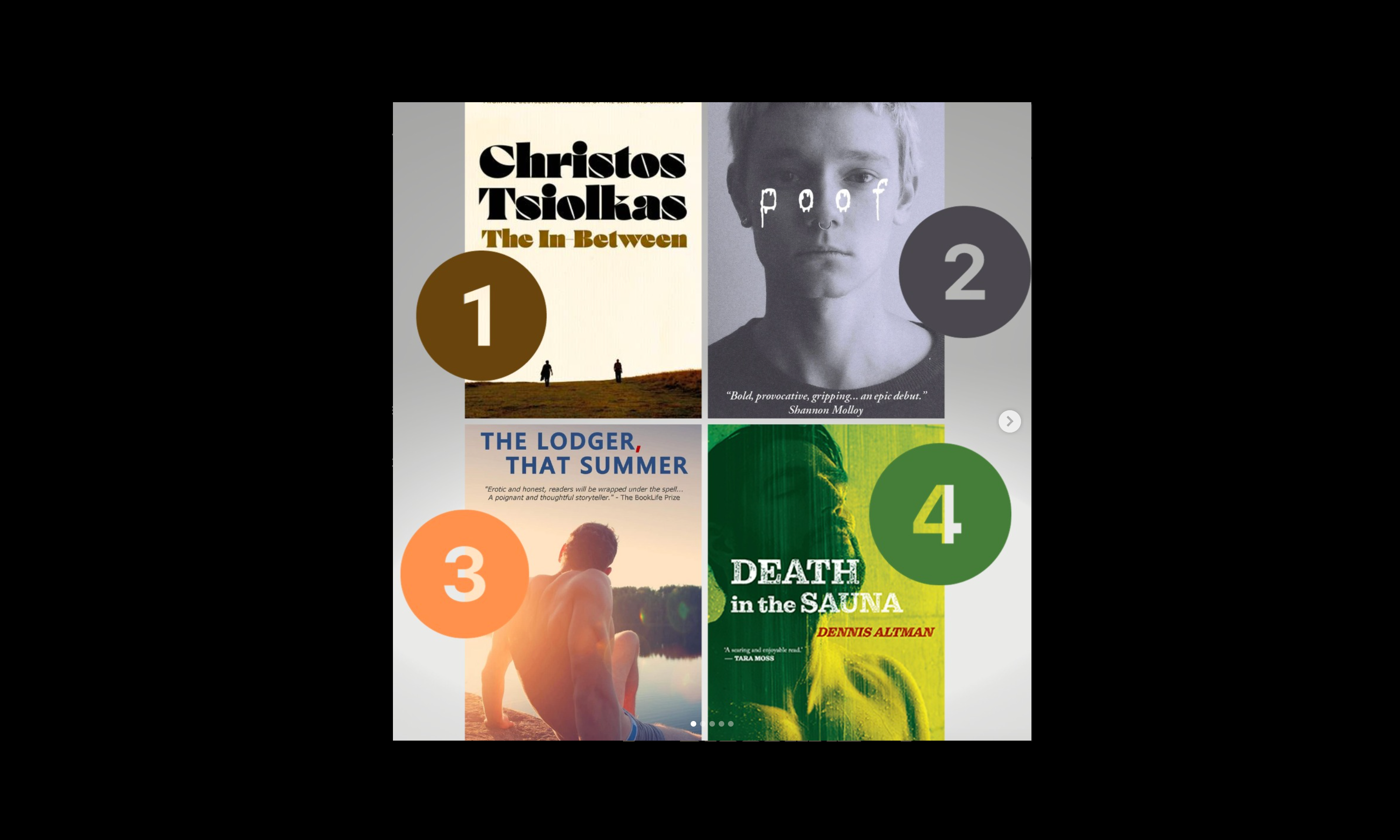

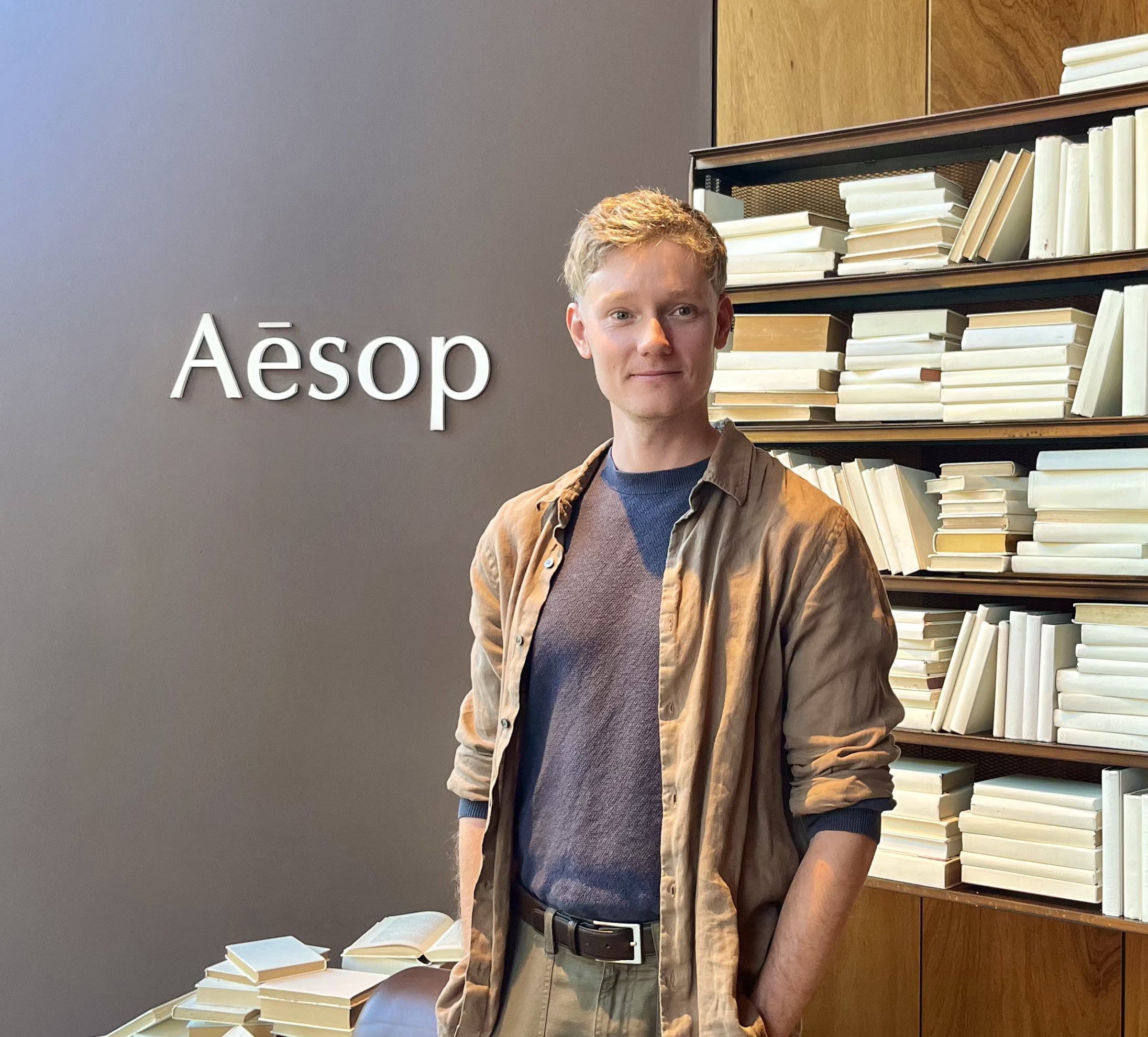

![Sublimate [paperback]](https://cdn.shopify.com/s/files/1/0755/1421/6765/files/Sublimatecover_70x70.jpg?v=1742516162)


